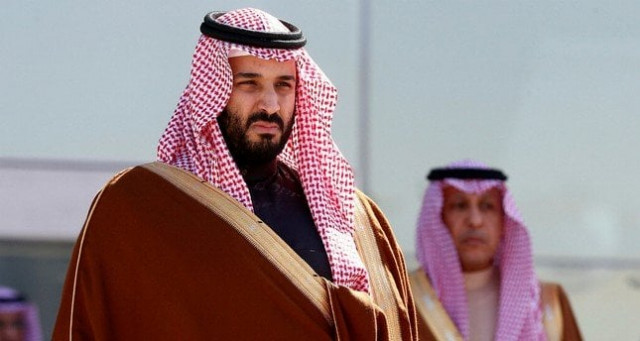Growing global ultra-nationalism ‘to trigger greater chaos’
Speakers advise better preparedness to avert turmoil in the ‘new world disorder’

Crown Prince Mohammad bin Salman. PHOTO: REUTERS
This was stated by Boston University’s (BU) Dean of the Pardee School of International Affairs Dr Adil Najam during a lecture on “The World in 2020: Update to the New World Disorder”. The lecture was organised by the Sustainable Development Policy Institute (SDPI) as part of its distinguished lecture series.
As the world’s politics is shaped amidst chaos and turmoil, Dr Najam noted that the world is not heading towards a new normal, at least not soon.
Instead, he was of the view that the world seems to have stepped back in time with regards to geopolitics. Curiously, Dr Najam drew parallels between the current socio-political situation with the situation in 1913 — just before the First World War began.
“Today, there is more instability and unpredictability in world politics when compared to 1913,” he added.
On changing global dynamics and tectonic shifts in power, Dr Najam said that the world is seeing the rise of anti-politics where, unfortunately, politics is being portrayed as a dirty word and dirty business by all segments of society, including the media, intellectuals, academics, and even politicians.
“This is bad for society as a whole,” he argued, adding that there is no longer any difference between different ideologies such as left- and right-wing political ideologies in what he termed as the ‘new world disorder’.
In recent decades, Dr Najam said that there was a rise of strongmen regimes such as Vladimir Putin in Russia, Xi Jinping in China, Mohammad bin Salman in Saudi Arabia and Recep Tayyip Erdogan in Turkey. Then there is the politics of ultra-nationalism such as in India under Narendra Modi and the United States under Donald Trump. There is also the politics of fear such as Rodrigo Duterte in the Philippines and Kim Jong-un in North Korea. All of these different facets of politics have surfaced because there is a demand for it.
“One half of the world’s population, two-thirds of the world economy and three-fourths of the world military is today under the control of strongmen,” said Dr Najam, adding that this means there will remain some conflict in the world as strongmen regimes in the world somehow contrive to test their strength to remain relevant in global power politics.
While commenting on the politics of anger, Dr Najam said that there are a lot of young people who are emerging as a new force on the horizon who are full of anger — such as Greta Thunberg in Sweden — and have certain legitimate demands, which should be accepted.
“The growing anger amongst the young generation is mainly for having a greater say in politics,” he explained.
On the rise of fake news, Dr Najam said that in the battle for truth amidst a growing culture of disinformation and fake news, climate change is one of the major victims.
“There is still a state of denial amongst the world leadership which is also vivid in the failure of COP25,” he said, adding that the Paris agreement has proven to be a big lie and that world leaders knew that they will not do anything substantial.
“That agreement was just a way to create false hope for the people around the globe,” Dr Najam underlined.
Speaking about the role played by technology in shaping world opinions and dynamics, Dr Najam said that new technologies and popular social media platforms have provided us all with space where anyone can essentially reach out to a larger audience to voice demands.
“How we adapt to the new technologies will shape future developments,” he asserted.
SDPI Executive Director Dr Abid Qaiyum Suleri said that almost in every part of the world at the moment, there is some sort of violent or non-violent protest going on while mass uprisings are changing and shaping world politics.
These mass uprisings are mainly linked with a lack of governance and the poor state of the economy coupled with other issues such as corruption and climate change, he said.
Governments around the world have to listen to the young generation and measure up to their expectations to avoid turmoil and chaos in the society, he further said.
Published in The Express Tribune, January 3rd, 2020.



















COMMENTS
Comments are moderated and generally will be posted if they are on-topic and not abusive.
For more information, please see our Comments FAQ